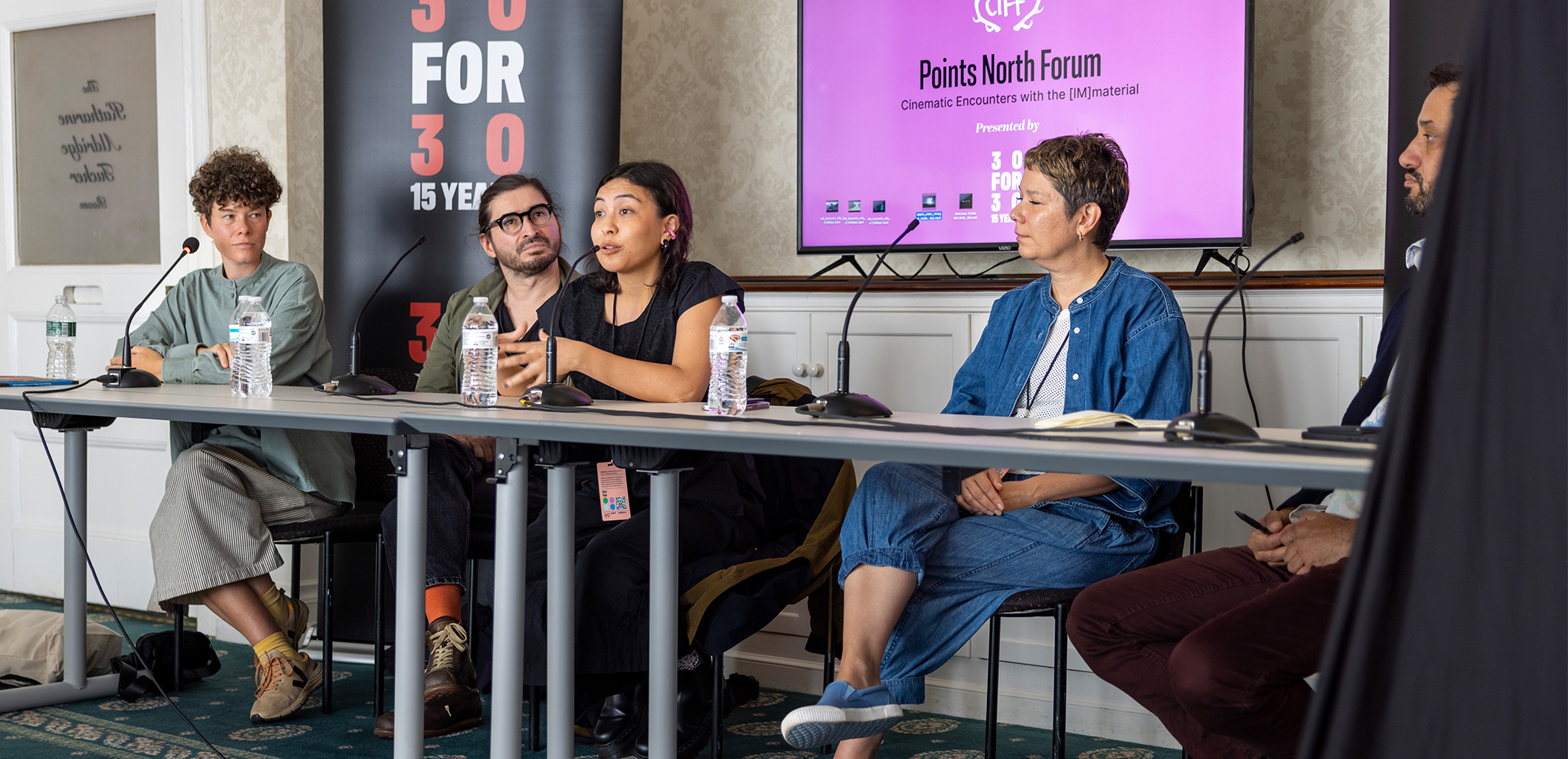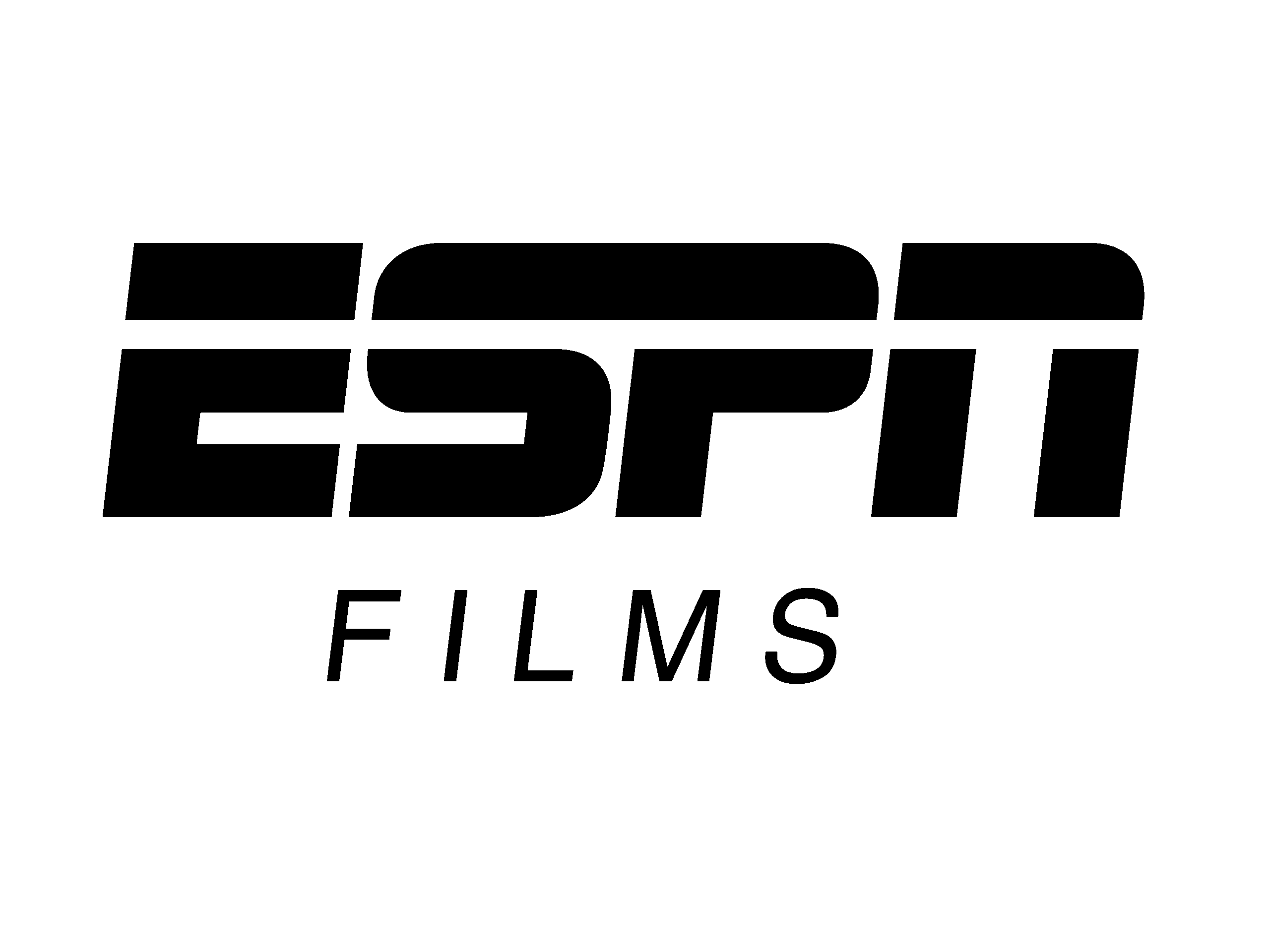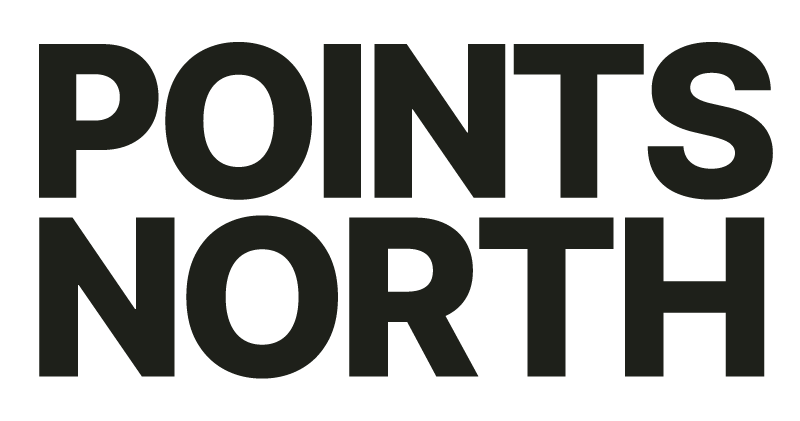
POINTS NORTH FORUM
This year’s Forum charts the shifting currents of documentary filmmaking and the industry around it—mapping the intersections of aesthetics, ethics, and advocacy in a moment of profound change. Across conversations on free expression, fair use, AI, science storytelling, and the long arc of artistic practice, filmmakers and industry leaders grapple with urgent questions: How do we sustain a creative life in a destabilized field? How do we navigate the political, legal, and technological forces shaping which stories are told—and who tells them? Through candid dialogue and collective inquiry, the forum invites us to imagine what documentary is now, and what it must become to meet the moment.
Presenting Partner

FRIDAY, SEPTEMBER 12
Form and Voice: The Art of Documentary Filmmaking
9:30am–11:00am (French Room, Camden Opera House)
What does it take to build a life in independent documentary film? How do artists refine their voice, experiment with new cinematic languages, and stay deeply connected to the communities and experiences that shape their stories? In this conversation, Reid Davenport (Life After), Deming Chen (Always), and Brahim Snoopy Ahmed (Khartoum) share how their lived experiences inform their approach to making feature documentaries—shaping the stories they tell, the relationships they build, and the aesthetic forms they explore. Together, they offer a candid look at navigating the artistic, ethical, and financial realities of the craft while building a meaningful creative practice in an ever-shifting industry.
- Reid Davenport, Life After
- Deming Chen, Always
- Brahim Snoopy Ahmed, Khartoum (Virtual)
- Moderator: Monika Navarro, Firelight Media
Nonfiction in the Age of Generative AI, Part 2
10:00am–12:00pm (Tucker Room, Camden Opera House)
At last year’s Forum, we explored how generative AI is reshaping nonfiction media, raising urgent questions about authenticity, ethics, and trust. This year, we continue the conversation with a two-part program that bridges practical, on-the-ground examples with a global view of AI’s democratic impacts.
In the first half, the Archival Producers Alliance’s Stephanie Jenkins and A.X. Mina share recent case studies involving the use of synthetic media in nonfiction production. These examples highlight the consent processes, ethical decision-making, and transparency strategies that can guide responsible use of AI in archival and documentary work. The conversation is deepened by insights from filmmaker Zac Manuel, as he shares his process and approach to using AI in his upcoming film, The Instrument.
The second half turns to the International Resources for Impact Storytelling (IRIS), presenting early insights from its research on the impacts of AI and digital platforms on democracy—with a focus on case studies from the Global South. IRIS’ Brett Davidson and Cara Mertes will discuss their work examining Big Tech’s influence, narratives about AI and the centrality of narrative in political contestation over the AI’s future trajectory, and emerging perspectives on whether democratic systems — and a vibrant civil society — can adapt and survive in the age of accelerating AI capabilities.
- Stephanie Jenkins, Archival Producers Alliance
- A.X. Mina, Archival Producers Alliance
- Zac Manuel, The Instrument
- Cara Mertes, International Resource for Impact and Storytelling (IRIS)
- Brett Davidson, International Resource for Impact and Storytelling (IRIS)
- Moderator: Kat Cizek (MIT Co-Creation Studio)
Support provided by the LEF Foundation
Geeta Gandbhir Masterclass
12:00pm–1:30pm (French Room, Camden Opera House)
Award-winning filmmaker Geeta Gandbhir (Lowndes County and the Road to Black Power, A Journey of a Thousand Miles: Peacekeepers) joins us for an in-depth masterclass on the craft and conscience of nonfiction storytelling. After winning the Directing Award at Sundance for her latest film The Perfect Neighbor—a searing exploration of race, violence, and “stand your ground” laws—Gandbhir reflects on her path from Emmy- and Peabody-winning editor to director of urgent, socially engaged films. Drawing on decades of experience, including both fiction and nonfiction work and collaborations with Spike Lee and Sam Pollard, she’ll share insights on building narrative tension from real events, ethical representation, and the editor’s eye that continues to shape her directorial vision.
- Geeta Gandbhir, The Perfect Neighbor
- Moderator: Iyabo Boyd, Brown Girls Doc Mafia
Collective Defense: Building Advocacy Infrastructure for Documentary Film
1:00pm–2:30pm (Tucker Room, Camden Opera House)
Freedom of expression is under threat and the rights of documentary filmmakers are increasingly at risk. How can our field respond collectively, rapidly, and effectively? In this participatory session, IDA Executive Director Dominic Asmall Willsdon will be joined by leading attorneys and experts in First Amendment law, civil rights, and advocacy to share new initiatives launching this fall—including rapid-response protocols, a new emergency fund for filmmakers at risk, strategic litigation initiatives, and legal services for documentary makers. Then we’ll open the conversation: What shared infrastructure and practices do we need to defend artistic freedom? Together, we’ll explore how filmmakers, organizations, and allies can strengthen the legal, financial, and organizational systems required to protect the public interest role of documentary.
- Dominic Asmall Willsdon, International Documentary Association
- Katie Townsend, Gibson, Dunn & Crutcher LLP
- Nicole Page, Reavis Page Jump LLP
- Moderator: Anurima Bhargava, TBD
Directors Commentary: Questioning Authority
2:30pm–4:00pm (French Room, Camden Opera House)
This panel brings together three filmmakers whose works confront entrenched power structures through both content and form. Ranging from personal essay to vérité and archival excavation, each film employs a distinct aesthetic to expose systems of control and influence—from Silicon Valley mythologies to environmental extraction and state violence. Lee Anne Schmitt’s Evidence, Julien Élie’s Shifting Baselines, and Juanjo Pereira’s Under the Flags, the Sun demonstrate how documentary film can be used to interrogate power, ideology, and the tectonic forces reshaping our world.
- Lee Anne Schmitt, Evidence
- Julien Elie, Shifting Baselines
- Juanjo Pereira, Under The Flags, The Sun
- Moderator: Brenda Coughlin, Lannan Foundation
Who Gets the Archive?
3:30pm – 5:00pm (Tucker Room, Camden Opera House)
Where does the archive go—and who does it belong to? As archives become increasingly inaccessible due to rising costs, political gatekeeping, and complex rights restrictions, filmmakers are finding creative ways to tell stories with what remains—or what’s missing. Some work within the fragments they can access, others make powerful statements through absence, and many navigate the possibilities of fair use to break through barriers. This panel examines the value of archives for representing and reclaiming historical narratives, the evolving legal and ethical landscape of archival access, and the long-term implications for what kinds of stories can—and can’t—be told. Join us for a critical and urgent conversation that spans from the filmmaker’s lens to industry-level responsibility.
- Carolyn Hepburn, ESPN Films
- Jackie Glover, Harvard Black Film Project
- Gentry Kirby, ESPN Films
- Paige Bethmann, Remaining Native
- Moderator: Stephanie Jenkins, Archival Producers Alliance
Support provided by the LEF Foundation
Shorts In-Session
5:00pm–7:30pm (French Room, Camden Opera House)
Presented by American Documentary and UFO
Three projects were selected for the second year of UFO and American Documentary’s work-in-progress initiative, “Shorts In-Session,” which presents short documentaries in post-production to a panel of industry experts and a live audience for feedback.
9/11-9/14 Rebecca Blandón
9/11-9/14 Ora DeKornfeld and Bianca Giaever
9/11-9/14 Maia Wikler
SATURDAY, SEPTEMBER 13
SUNDAY, SEPTEMBER 14
Ways of Seeing: Science Storytelling Conversation & Observation Activity
2:00pm–4:00pm (French Room, Camden Opera House)
Science storytelling is not just about facts and figures, but about how scientific ways of seeing can reshape our experience of the world. Just as scientific knowledge is threaded into our everyday experience and shapes our subjective realities—the evolving genre of science documentary is increasingly centering on evocative, emotionally resonant approaches that connect with audiences. How can filmmakers craft stories that are as rigorous as they are wondrous? We’ll begin this session with a short conversation between filmmakers, funders, and scientists, charting the myriad ways of seeing science through cinema.
Then, inspired by Ian Cheney’s Observer, we’ll invite you on an immersive observation experience* outside in Camden Village. With your own Observer Kit, you’ll have the tools and guidance to explore your surroundings with heightened awareness and curiosity. At the end, we’ll reconvene for a group discussion about what new knowledge and insight was discovered through mindful observation.
- Ian Cheney, Observer
- Tasha Van Zandt, A Life Illuminated
- Ross McClean, No Mean City
- Caitlin Mae Burke, Sandbox Films
- Moderator: Ina Fichman
*Accessibility Note: There will be several ways to participate in the observation experience portion of this session, including the option of remaining in the French Room and an outdoor route that is accessible for mobility devices.
Raoul Peck Masterclass
11:00am–12:30pm (Rockport Opera House)
Acclaimed Haitian filmmaker Raoul Peck (Orwell: 2+2=5, I Am Not Your Negro, Exterminate All the Brutes, Silver Dollar Road) has built a singular body of work that dismantles colonial histories, amplifies oppressed voices, and reveals how our past continually shapes our present. In this masterclass, Peck will reflect on making Orwell: 2+2=5—a bracing and timely meditation on truth, language, and political manipulation—while tracing the connections between his films’ personal and political roots. Alongside the film’s Executive Producer Alex Gibney, Peck will discuss cinema as a tool of resistance, the urgency of reclaiming historical narratives, and the role of documentary filmmakers in challenging abuses of power.
- Raoul Peck, Orwell: 2+2=5
- Alex Gibney, Jigsaw Productions
- Moderator: Dominic Asmall Willsdon, International Documentary Association
